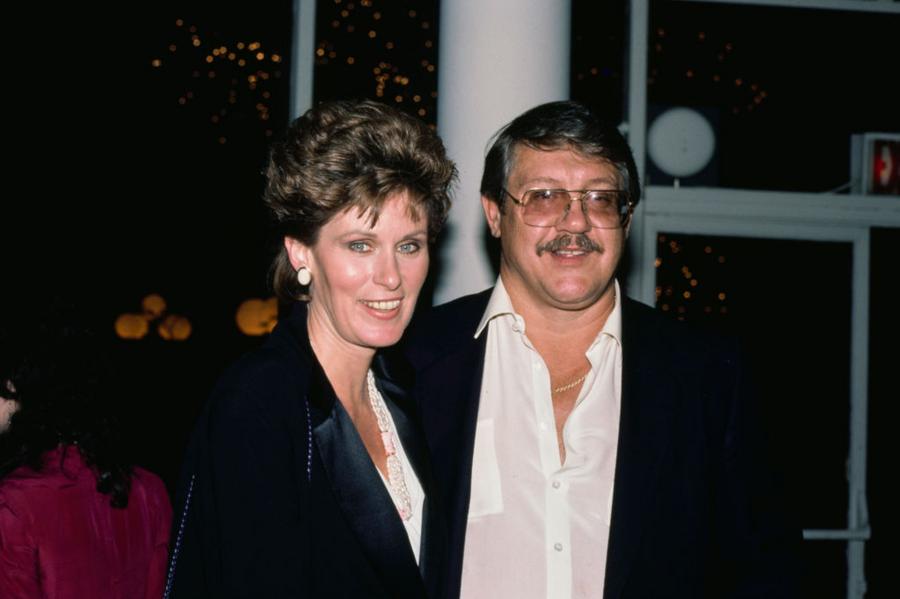What was Alex Karras's Net Worth?
Alex Karras was an American football player, actor and wrestler who had a net worth of $6 million. That was a combined net worth with his wife at the time of his death, Susan Clark, who was also his co-star on "Webster."
Alex Karras played 12 seasons in the NFL with the Detroit Lions between 1958 and 1970. During that time, he was selected to four Pro Bowls. As an actor, Karras was known for his supporting roles in the films "Blazing Saddles" and "Victor/Victoria" and for his starring role as George Papadopolis on the television sitcom "Webster," which starred Emmanuel Lewis.
Early Life and High School
Alex Karras was born on July 15, 1935 in Gary, Indiana to Canadian mother Emmeline and Greek immigrant father George. Growing up, he learned to play football with his older brothers Lou and Ted. At Emerson High School, Karras was a four-time Indiana all-state selection as a football player. He also excelled in wrestling, track, and baseball.
Collegiate Career
After graduating from high school in 1954, Karras was visited by three coaches from the Iowa Hawkeyes football program and was flown to Spencer, Iowa without the knowledge of his family. He ended up going to the University of Iowa, where he played for the Hawkeyes from 1954 to 1957. Karras struggled early on with classwork, homesickness, and his coach Forest Evashevski. In his sophomore year, he got into trouble for showing up to camp 40 pounds overweight, and after not being able to play in the season finale, for throwing a shoe at his coach and quitting the team. After losing his excess weight, Karras rejoined the football team in 1956. That season, Iowa won the Big Ten title and its first-ever Rose Bowl. Karras finished his collegiate career on a high note in 1957 as the most dominant lineman in the country. A consensus first-team All-American, he also won the Outland Trophy and was runner-up for the Heisman Trophy.
Detroit Lions
Before joining the NFL, Karras was a professional wrestler for six months. He was subsequently drafted by the Detroit Lions in the 1958 NFL draft. Karras would play for the Lions for 12 seasons between 1958 and 1970, during which time he was one of the most dominant defensive tackles in the league. The only season he didn't play in was the 1963 season, as he was suspended by the NFL for placing bets on NFL games while owning a Detroit bar that allegedly hosted gambling and organized crime. During his exile, Karras made a return to professional wrestling. After being reinstated by the NFL in 1964, he butted heads with new Lions coach Harry Gilmer, who reportedly threatened to release him. However, Gilmer ended up being the one leaving.
During his time with the Lions, Karras earned four Pro Bowl selections: in 1960, 1961, 1962 and 1965. He was also a first-team All-Pro selection in 1960, 1961, and 1965. The Lions had their best years during the decade in 1962 and 1969, going 11-3 in the former and 9-4-1 in the latter. However, the team's only playoff appearance during Karras's tenure was in 1970, which was Karras's final year; the Lions ultimately fell to the Dallas Cowboys in the Divisional Round. Following the 1971 preseason, while he was still recovering from a knee injury suffered the previous year, Karras was released by the team. He finished his career with the Lions having played 161 games over 12 seasons.

Getty
Acting Career
Karras made his acting debut playing a version of himself in the 1968 sports comedy film "Paper Lion," based on George Plimpton's non-fiction book about his tryout with the Detroit Lions. In 1972, he played the villainous Booker Llewellyn in the Western television film "Hardcase," and in 1973 played an Olympic weightlifter in the television film "The 500 Pound Jerk." Karras went on to have a small but memorable role in Mel Brooks's 1974 satirical Western film "Blazing Saddles" as the dimwitted thug Mongo. Also that year, he appeared in the film "The Great Lester Boggs" and had a guest role on the television sitcom "M*A*S*H." Later in the decade, Karras was in the television films "Babe" and "Mad Bull"; the television miniseries "Centennial"; and the films "FM" and "Jacob Two-Two Meets the Hooded Fang."
In 1980, Karras appeared in the disaster film "When Time Ran Out" and the two-part NBC television film "Alcatraz: The Whole Shocking Story." The following year, he was in the comedy films "Nobody's Perfekt" and "Porky's." In 1982, Karras had a memorable part as closeted gay bodyguard 'Squash' Bernstein in the musical comedy film "Victor/Victoria," alongside James Garner and Julie Andrews. He went on to land his biggest role in 1983 on the ABC television sitcom "Webster," playing the titular character's adoptive father, George Papadopolis. Karras starred opposite his real-life wife, Susan Clark, who played his character's wife on the show. "Webster" ran for six seasons through 1987. During the show's original run, Karras appeared in the 1984 romantic thriller film "Against All Odds." His final roles were in the 1995 television film "Fudge-a-Mania" and the 1998 crime dramedy film "Buffalo '66."

Susan Clark and Alex Karras (Photo by Vinnie Zuffante/Getty Images)
Other Appearances and Activities
Beyond his football and acting careers, Karras did sportscasting. In 1972, he hosted his own local weekly football program on CKLW-TV in Windsor, Ontario, Canada, and from 1974 to 1976 served as a commentator on "Monday Night Football." Karras made appearances on various talk, variety, and game shows over the years, including a hosting stint on NBC's "Saturday Night Live" in 1985. He also served as a spokesperson for La-Z-Boy recliners in a humorous ad campaign with other NFL greats. In 1991, Karras published a novel entitled "Tuesday Night Football." Later in his life, he did some football coaching, and owned an ice cream parlor in Surfside Beach, South Carolina called The Cow.
Personal Life and Death
Karras married his first wife, Joan Jurgensen, in 1958. They had five children before divorcing in 1975. Karras went on to wed Canadian actress Susan Clark in 1980; they had a daughter together.
Karras lived with major health problems during his later years, including dementia and heart disease. In 2012, he was diagnosed with kidney failure and was ultimately put into hospice care. On October 10 that year, he passed away at his home in Los Angeles at the age of 77.








